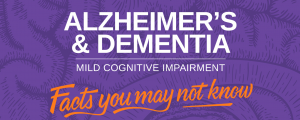Dr. Oz Is an Alzheimer’s Advocate, Speaking out on His Global Platform
Dr. Oz is a name we all know and trust. He touches on just about every health-related subject, giving real, actionable advice. He has a strong influence on his audience, as he guides them towards positive wellbeing.
In one episode, he discussed the benefits of tart cherry juice. Now, whether this was a coincidence or not — when I went to our local supermarket, the tart cherry juice was no where to be found. It had sold out.
Perhaps this was the doctor’s doing?
Either way, Dr. Oz has built a platform — one in which he uses as an educational resource. He has helped millions improve their health, and when it comes to Alzheimer’s research, he’s teaching his audience how to protect their brain — one episode at a time.
Dr. Oz in the Spotlight + the SHIELD Plan
Dr. Oz is a known TV personality, he is also a cardiothoracic surgeon, a Columbia University professor, and an author. After appearing on Oprah in 2004, he become her go-to health expert and launched his own show in 2009. Since then, he has attracted audiences from around the globe, as they tune in to learn about the latest in health and research.
Dr. Oz covers anything and everything from type II diabetes to anti-aging strategies. He also recently discussed the SHIELD plan in order to prevent Alzheimer’s disease.
After The Alzheimer’s Association International Conference, it was stated that approximately 1 in every 3 cases of dementia are believed to be preventable. In order to protect yourself, a professor of neurology at Harvard Medical School, Dr. Rudolph Tanzi, recommends following the SHIELD plan.
Six Components of the SHIELD Plan
Bringing this plan to his audience, Dr. Oz covered the following six components:
-
Sleep — During sleep, amyloid plaque production decreases while your brain increases its ‘cleaning’ ability. This helps to clear out excess plaque. It is recommended that you get 7-8 hours of sleep each night.
-
Minimize stress — Stress affects both your body and mind, which is why meditation is highly recommended. Meditation comes in many forms, so focus on the type of meditation that you connect with. Deep breathing practices are the perfect place to start.
-
Social interaction — It is believed that loneliness can increase stress levels and may even be a risk factor for Alzheimer’s. Social interaction should be prioritized, so be sure to stay in touch with both friends and family.
-
Physical activity — Heart health and brain health are connected, which is why it is important to protect yourself from cardiovascular disease. Start small and work your way up to a regular exercise routine. This week, go for one power walk. Slowly increase the amount of exercise you perform in a week, working towards a routine consisting of physical activity three times a week, for 30-45 minutes each session.
-
Learn something new — Whether you’ve always wanted to learn Spanish or have been interested in a new hobby, challenge your brain! This will help build new nerve connections to optimize brain health.
-
Diet — The Mediterranean diet has been shown to benefit the brain. This diet consists of fruits, vegetables, olive oil, nuts and seeds, and limited amounts of red meat. Also, avoid artificially sweetened drinks and soda in general.
The Benefits of an At-Home Test

Dr. Oz also recently focused on the benefits associated with a simple, at-home test — such as BrainTest. BrainTest is able to determine whether or not you may be suffering from some of the earliest Alzheimer’s warning signs — all from the answers you provide on a simple test taken in the comfort of your own home.
In the example on Dr. Oz, a volunteer completed the test, matching faces with names, faces with occupations, etc. If you found that you really struggling when completing this test at-home, then it is a sign that you should probably visit your doctor.
Of course, not being able to remember certain names does not necessarily indicate that you have Alzheimer’s. However, it is certainly worth taking proactive action so that an early preventative diagnosis can be reached.
Even if you do not have Alzheimer’s, such a test may help you to discover other possible abnormalities in your brain health. For example, you may be suffering from issues with your thyroid or have some sort of nutritional deficiency. These issues can be addressed following a more complete examination by a physician or specialist.
The whole idea here is to increase awareness, as well as peace-of-mind. Regardless of the disease or condition, early diagnosis is very important. This is why tests such as BrainTest are currently revolutionizing the diagnostic process.
Dr. Oz has taken on a responsibility to educate those who are willing to take positive action. You can improve your health — including your neural wellbeing — but the change will need to begin with you.


Comments (1)
I have been getting very forgetful and it’s scarey!!! I will be taking Dr. Oz ‘s advice of what I eat, exercise 3 days a wk., and get at least 8 hrs. of sleeps.